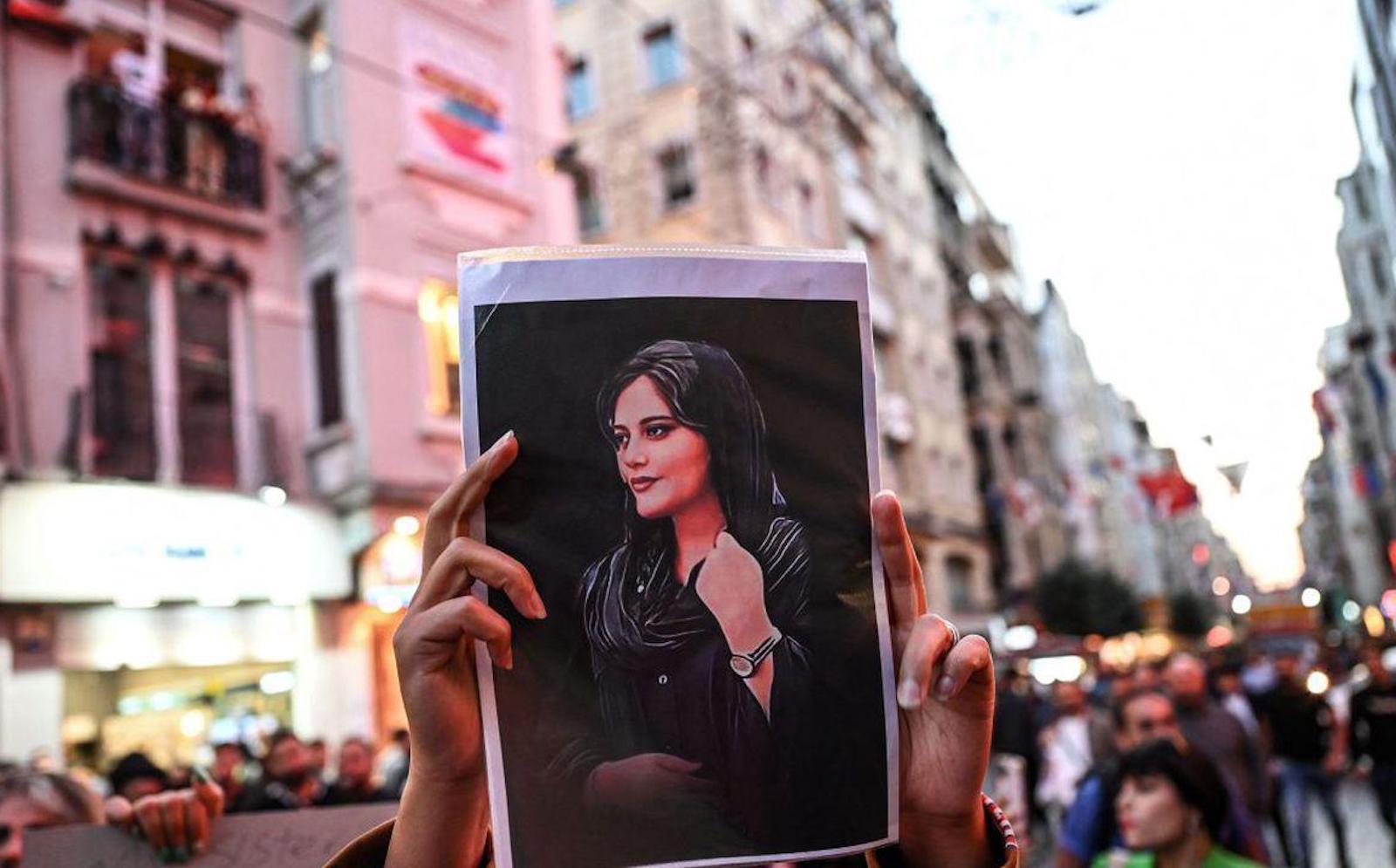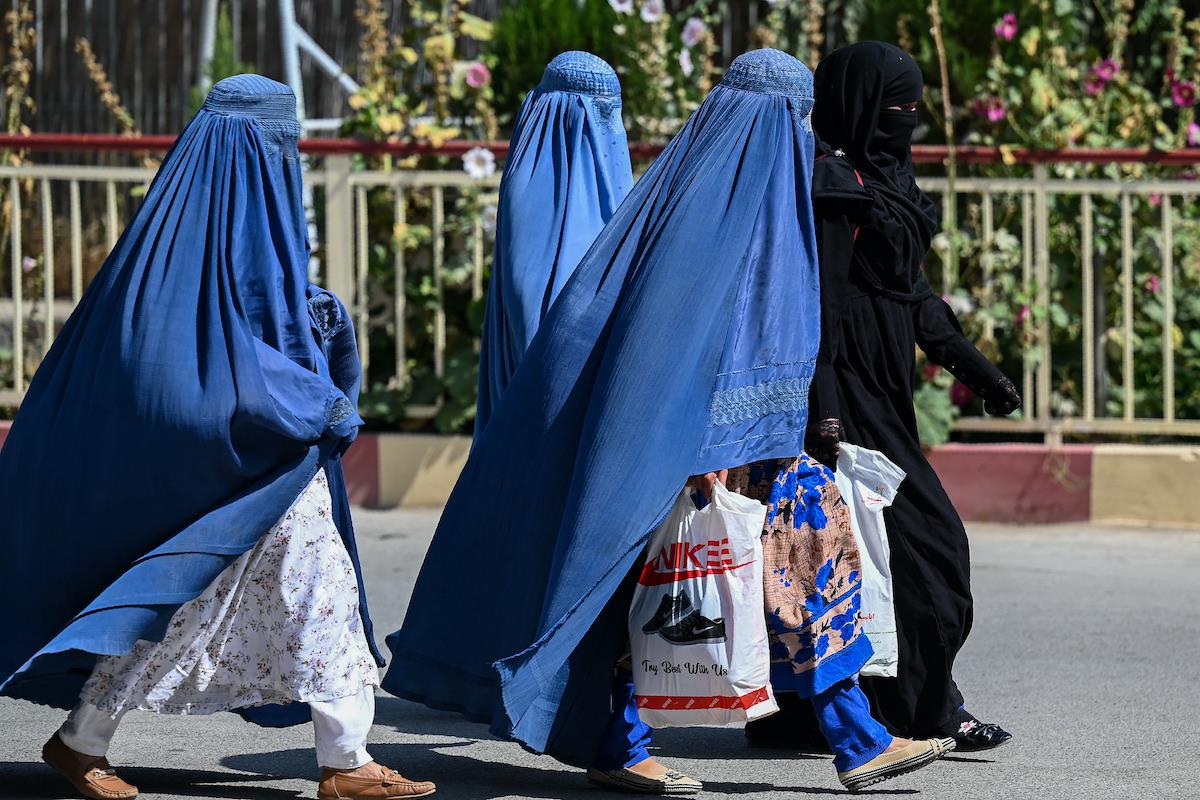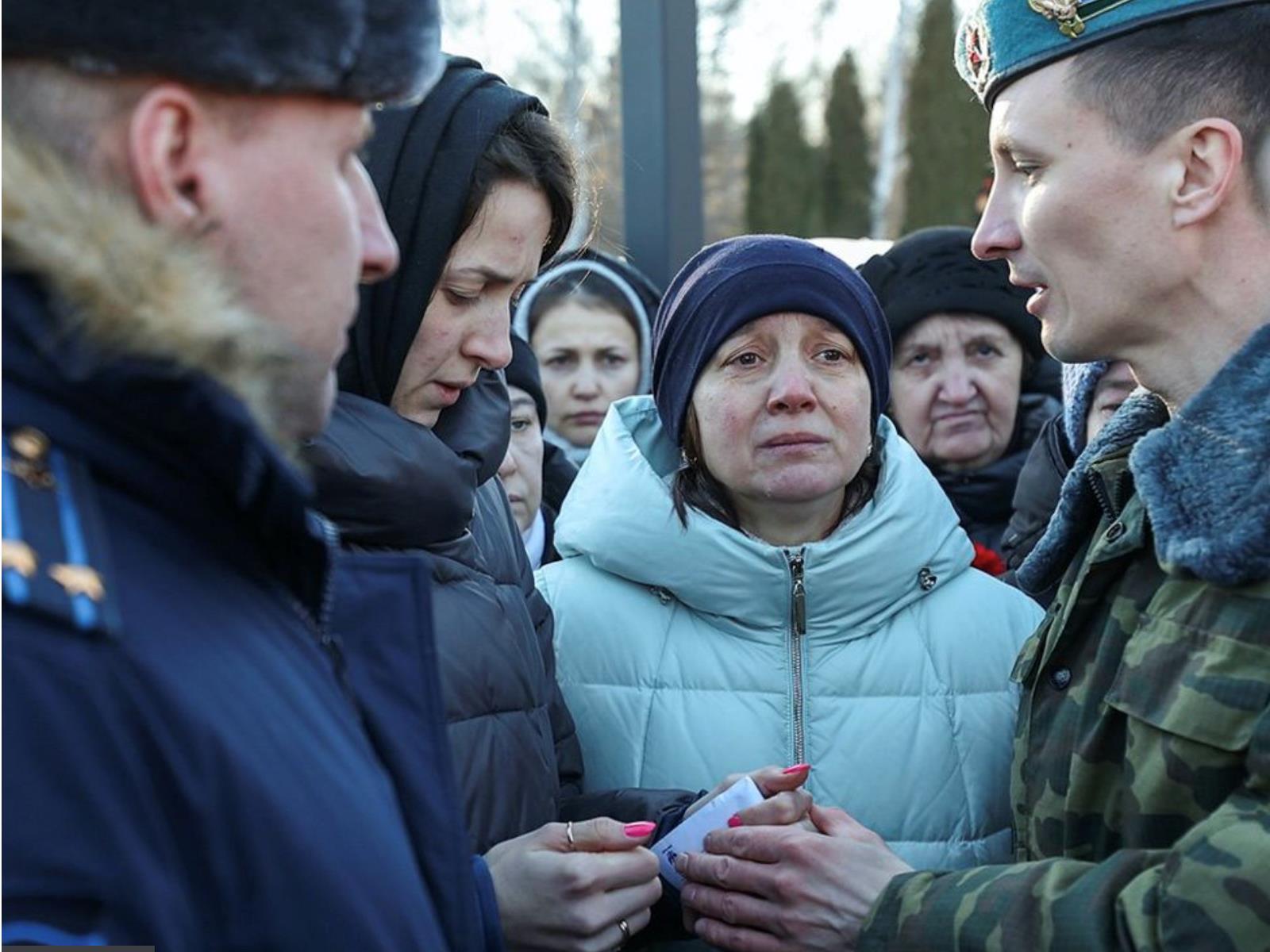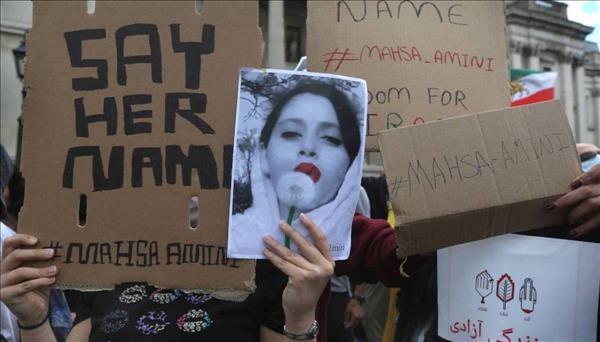
Women's Power Alive In Benighted Iran, Afghan And Russia
Political unrest in Iran, Afghanistan and Russia all feature heavy involvement of women in uphill battles against dictatorial repression.
The death of a jailed woman in Iran has led to days of public protests across Iran. In response, the Tehran government has violently targeted female participants with batons and bullets.
In Afghanistan, clusters of women have led sustained protests against the Islamic fundamentalist Taliban government for a year. There, whips are the weapon of choice wielded by authorities to strike back at the women's rejection of second-class citizenship imposed by the ruling radical militant group.
And in Russia, young men are fleeing in droves a military draft that aims to send them to fight in Ukraine. Police are responding by jailing their mothers, wives, sisters and girlfriends who protest the conscription drive.
It is unlikely that the unrest will sway the mullahs in Iran to ease religiously-based rules aimed at women, nor persuade the rulers of Afghanistan to restore jobs and educational opportunities to women, nor derail Russian President Vladimir Putin's plans to step up Russia's assault on Ukraine.
Nonetheless, the largely spontaneous protests reveal often dormant dissatisfaction inside political systems that work hard to foster unanimous backing. And women are in the forefront.
In Iran, the death of Masha Amini, an ethnic Kurdish woman detained on September 13 in Tehran by so-called morality police, has sparked ongoing nationwide protests. The government said her style of wearing the hijab, an Islamic headscarf, was improper.
Iranian authorities said she died of an unrelated heart ailment. They provided suspiciously-edited videos to show she was okay when the morality squad arrested her. Her father said she had always been in good health; police beat up her brother when he tried to follow her into jail.

Masha Amini's death in 'morality police' custody has sparked days of nationwide protests. Image: Twitter
The country has been in turmoil ever since, with men joining the women's protests. In response, the government not only called on security forces to fire on protestors but organized its supporters to parade their approval of the crackdown.
Authorities have described the protests as“norm-breaking,” labeled participants“rioters and thugs,” and spread disinformation that demonstrators were burning the Koran. At least 75 demonstrators have been killed.
As if to make a point that women protestors are not immune from violent repression, security forces shot dead Hadis Najabi, a 20-year-old demonstrator who had been filmed discarding her hijab in plain view of police.
Burning hijabs and cutting off one's hair became symbols of women's anger and Najabi became an internet folk hero. Police riddled her with eight bullets while she protested.
Women going bare-headed has been illegal since 1979, when Iran became an Islamic republic. An Iranian analyst sardonically remarked that the hijab rule was on a par with two other fetishistic symbols of the Islamic Republic: the oft-repeated chants of Death to America and Death to Israel.
Iran's Islamic rulers have faced numerous bouts of political unrest over its more than four-decade rule. Reasons have included electoral fraud, economic decline, police brutality and suppression of minorities.
However, the current upheaval is far from the worst outbreak: In 2019, police killed more than 300 demonstrators for protesting high fuel prices.
In Afghanistan, men have not joined women in their demonstrations against the Taliban, which has arguably weakened their drive for equality. The protests began not long after the US withdrawal from the country just over a year ago and have largely petered out.
Strict public dress codes in Afghanistan indicate the reduced horizons for women that are even tighter than in Iran. In public, Afghan women must wear a head-to-toe covering called the niqab.
Girls can only attend elementary school; high school and college are mostly off-limits. So is work outside the home, except in some medical areas. When women go out in public, they must be escorted by a relative or husband.

Niqab-clad Afghan women walk near the premises of Wazir Akbar Khan hospital in Kabul on September 1, 2021. Photo: AFP / Aamir Qureshi
It is unclear whether men are eager to risk battle for women's rights in Afghanistan. There are other deep problems sucking up everyone's energy: unemployment, hunger, lingering Covid, corruption, government mismanagement, declining revenues and drought, to name but a few.
The US has kept about US$7 billion in foreign exchange reserves out of Taliban hands, the International Monetary Fund has frozen access to funds meant to ease Covid economic disruption and the World Bank has suspended rural development and public health projects.
Afghanistan's continued hosting of international terror groups underlies Western reluctance to aid the country in any way.
The incipient turbulence in Russia and women's role in it erupted with Putin's decision to call up 300,000 men to fight in Ukraine amid growing signs his war isn't going to plan. Putin's action awoke the Russian public to the war's growing costs, in lucre and lives.
Since the decline and collapse of the Soviet Union, women have played a key role in denouncing military abuses of conscripts, including most vocally during the debilitating war in Chechnya in the 1990s.
The Committee of Soldiers' Mothers of Russia (CSMR), an independent organization organized during late Soviet rule, was instrumental in creating opposition to the first Chechen war. Its activities also focused on advising conscripts of their rights.
Last year, perhaps in anticipation of possible anti-war protests, the government's Federal Security Service, the heir to the Soviet-era KGB, began to harass independent civil organizations on suspicion of being“foreign agents.”
Without court orders, security forces could raid and shut down such organizations at will. In October 2021, the CSMR's home office in St Petersburg stopped offering human rights services to soldiers and recruits but continued to monitor military activities.
In February this year, CSMR looked into complaints of parents who said military authorities were coercing recruits on duty in Belarus to sign up for possible combat in Ukraine. The public at large was indifferent to such activities until the new mobilization was announced this month.
Protests, often led by women, spread from far eastern Russia to the borders of Ukraine. In Nalchik, a town near Russia's eastern border with Georgia, mothers stormed the mayor's office to protest the military call-ups.

Russian women look on mournfully at a funeral is held in Moscow for a Russian sergeant killed in Ukraine. Photo: Screengrab / BBC / Getty
In Volgograd, at least ten men and women were arrested for protesting, while in the town of Makhachkala, women on a town square confronted police in protest of the military draft.
On internet videos, some were heard screaming,“Why are you taking our children? Who attacked whom? Who attacked Russia? We are the ones who attacked Ukraine. Russia attacked Ukraine! No to war!”
In Moscow, police took a male demonstrator in custody, stuck a dumbbell in his anus, and threatened to do the same to his girlfriend, according to the Novaya Gazeta Russian-language newspaper.
Later in the day, Moscow police raided the apartment of anti-war activist Daria Ivanova,“strangled, kicked, punched, grabbed by the hair,” then charged her with“discrediting the Russian Armed Forces” and ordered her to appear for questioning, Novaya-Gazeta said.
Scans of the internet reveal videos of arrests of women in far-flung Siberian towns: Chita, Irkutsk, Tomsk and Transbaikal. In Khabarovsk, near the border with China, a detained woman shouted at one of her captors:“Mobilize yourself, you bald rat!”
At least 2,300 Russians have been detained during the past week, according to OVD-Info, a Russian human rights agency that for now is still operating. What comes next is not necessarily Putin's ouster, having put so much political investment and prestige in crushing Ukraine.
Foreign Policy magazine predicted Putin will double down on control at home as he has doubled down on the war itself. Women's power won't be enough.
“Repression will not necessarily speed up or streamline the mobilization,” the magazine wrote,“But it will keep the streets quiet and allow Putin to continue his aggression.”

Legal Disclaimer:
MENAFN provides the
information “as is” without warranty of any kind. We do not accept
any responsibility or liability for the accuracy, content, images,
videos, licenses, completeness, legality, or reliability of the information
contained in this article. If you have any complaints or copyright
issues related to this article, kindly contact the provider above.


















Comments
No comment